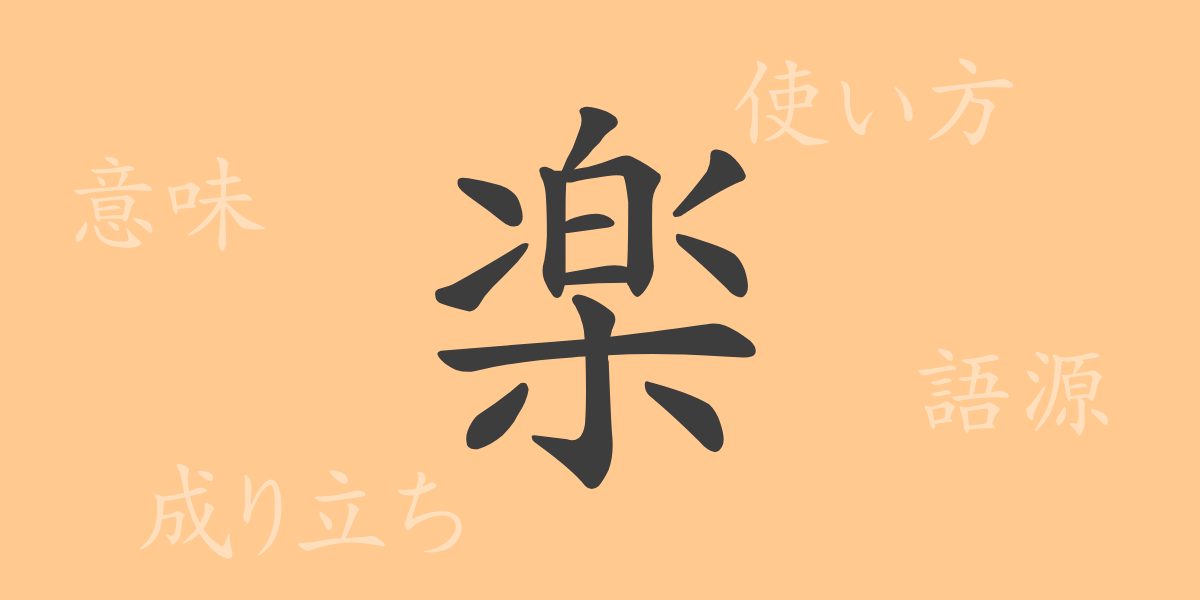In the Japanese language, there exists a myriad of kanji characters that richly express emotions. Among them, “楽” (raku) is a word frequently used in daily life and symbolizes the enrichment of our spirits. This article delves into the historical background of the kanji “楽,”(Raku) its meanings, usages, and explores idioms and phrases that include this character. By deeply understanding “楽” as a common kanji in Japan, we can catch a glimpse of the true value of words.
The Origin (Etymology) of 楽(Raku)
The kanji “楽”(Raku) evolved from ancient Chinese pictographs. Originally, this character depicted the figure of a person playing music, symbolizing the joy and comfort that music brings. Over time, its meanings expanded to not only encompass sensory pleasures such as “enjoyable” and “comfortable” but also “to make easy” and “effortless.” Thus, “楽” came to be used to express a wide range of emotions and states.
The Meaning and Usage of 楽(Raku)
In modern Japanese, “楽”(Raku) primarily represents comfort, joy, and the ease of doing something. It is also used in the term “optimistic” to indicate a positive attitude or way of thinking. This kanji conveys a positive nuance in many contexts and is closely related to the lives of Japanese people.
How to Read 楽, (Raku)Stroke Count, and Radical
The kanji “楽” (Raku)also has interesting features regarding its reading and form.
- Readings: Onyomi (Chinese reading) are “がく” (gaku) and “らく” (raku), Kunyomi (Japanese reading) are “たのしい” (tano-shii) and “たのしむ” (tano-shimu)
- Stroke count: A total of 13 strokes
- Radical: 木部 (Kihenn) [Wood radical]
Idioms, Phrases, and Proverbs Using 楽 and Their Meanings
There is an abundance of idioms, phrases, and proverbs in Japanese that use “楽.” For example, “楽天的” (rakutenteki) represents an attitude of looking at things in a positive and optimistic light, while “安楽死” (anrakushi) means a death without suffering. The expression “楽々” (rakuraku) is used to describe the ease of doing something or a state free from stress. These expressions are utilized in everyday conversations, literature, and even in business contexts.
Conclusion on 楽(Raku)
Through this article, we have delved deeply into the multifaceted appeal of the kanji “楽.” (Raku)From its origins to its evolution into contemporary times, its meanings and usages, and its presence in idioms and proverbs, we can see how deeply this single character is rooted in the emotions and culture of the Japanese people. “楽” (Raku)holds a value beyond a mere character; it is a symbol of history and culture that continues to live within our language.

























